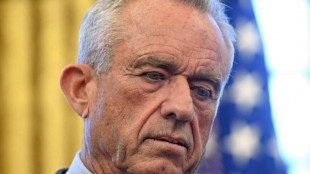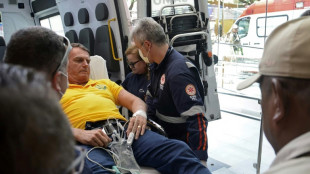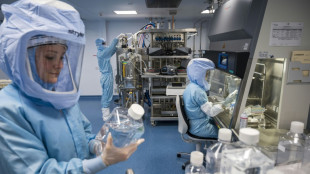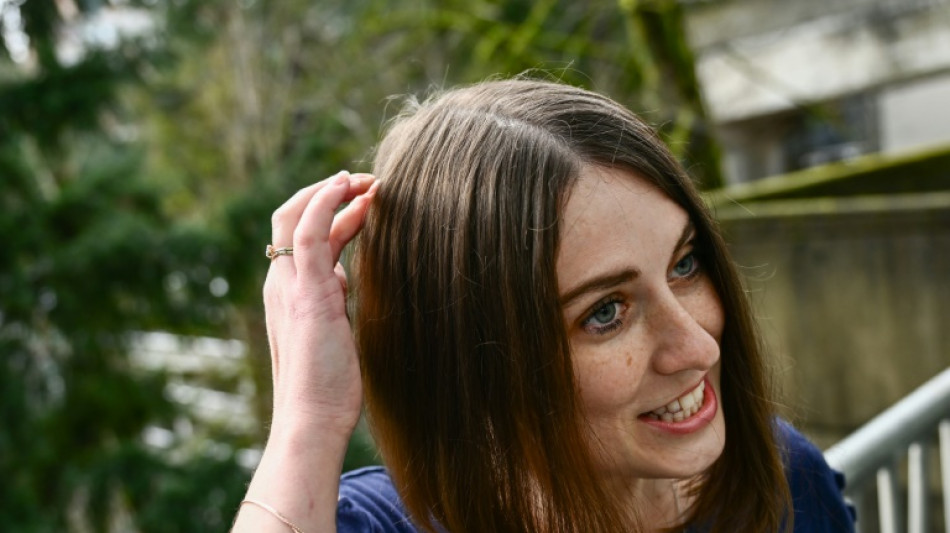
-
 Almeida claims Tour of the Basque Country with stage six triumph
Almeida claims Tour of the Basque Country with stage six triumph
-
Toll hits 225, Dominican officials say all bodies returned to loved ones

-
 Leverkusen title hopes take hit in Union stalemate
Leverkusen title hopes take hit in Union stalemate
-
Ferrand-Prevot wins sensational women's Paris-Roubaix on debut

-
 De Bruyne targets Champions League place before Man City farewell
De Bruyne targets Champions League place before Man City farewell
-
Rose leads stacked leaderboard heading into Masters third round

-
 Ferrand-Prevot wins sensational Paris-Roubaix women's debut
Ferrand-Prevot wins sensational Paris-Roubaix women's debut
-
US, Iran hold 'constructive' nuclear talks in Oman
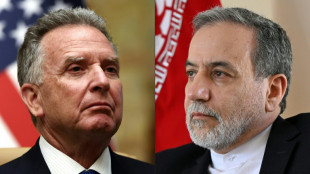
-
 Bordeaux-Begles' Penaud breaks Champions Cup single season try record
Bordeaux-Begles' Penaud breaks Champions Cup single season try record
-
Pogacar 'here to go for it' in Paris-Roubaix debut

-
 Real Madrid need to plug defensive leaks: Ancelotti
Real Madrid need to plug defensive leaks: Ancelotti
-
Markram, Pooran lead Lucknow to IPL win over Gujarat

-
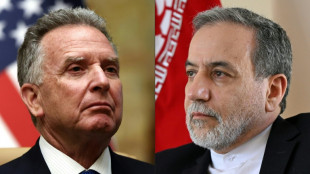 First US-Iran nuclear talks in years take place in Oman
First US-Iran nuclear talks in years take place in Oman
-
Boulard double takes Women's Six Nations contenders France past Wales

-
 Piastri leads McLaren 1-2 in Bahrain final practice
Piastri leads McLaren 1-2 in Bahrain final practice
-
Alcaraz beats Davidovich Fokina to reach first Monte Carlo final

-
 De Bruyne inspires Man City revival to crush Palace
De Bruyne inspires Man City revival to crush Palace
-
Israel seizes key Gaza corridor, to expand offensive

-
 UK lawmakers hold emergency debate to save British Steel
UK lawmakers hold emergency debate to save British Steel
-
Warnings issued, flights cancelled as strong winds whip north China

-
 End of the line for Hong Kong's Democratic Party
End of the line for Hong Kong's Democratic Party
-
Israel takes control of key Gaza corridor, to expand offensive

-
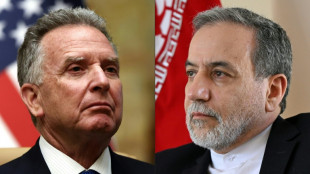 First US-Iran nuclear talks in years start in Oman
First US-Iran nuclear talks in years start in Oman
-
Asian football chief fears 'chaos' if 2030 World Cup expands to 64 teams

-
 UK lawmakers begin emergency debate to save British Steel
UK lawmakers begin emergency debate to save British Steel
-
Accord reached 'in principle' over tackling future pandemics: negotiating body

-
 Hamas expects 'real progress' in Cairo talks to end Gaza war
Hamas expects 'real progress' in Cairo talks to end Gaza war
-
Lady Gaga brings mayhem to the desert on Coachella day one

-
 UN warns US aid cuts threaten millions of Afghans with famine
UN warns US aid cuts threaten millions of Afghans with famine
-
Japan PM warns of divided world at futuristic World Expo opening ceremony

-
 Junta chief frontrunner as Gabon holds first election since 2023 coup
Junta chief frontrunner as Gabon holds first election since 2023 coup
-
Iran delegation in Oman for high-stakes nuclear talks with US
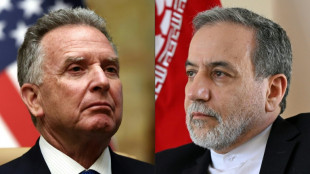
-
 Australia beat Colombia to end BJK Cup bid on winning note
Australia beat Colombia to end BJK Cup bid on winning note
-
German refinery's plight prompts calls for return of Russian oil

-
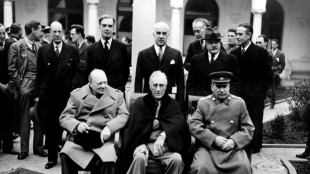 Trump carves up world and international order with it
Trump carves up world and international order with it
-
Paris theatre soul-searching after allegations of sexual abuse

-
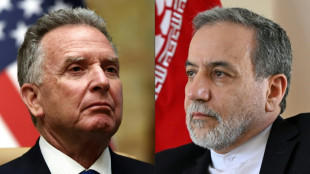 US, Iran to hold high-stakes nuclear talks
US, Iran to hold high-stakes nuclear talks
-
Frustrated families await news days after 222 killed in Dominican club disaster

-
 Jokic triple double as Denver fight back for big win
Jokic triple double as Denver fight back for big win
-
Trump envoy suggests allied zones of control in Ukraine

-
 Iraqi markets a haven for pedlars escaping Iran's economic woes
Iraqi markets a haven for pedlars escaping Iran's economic woes
-
Chinese manufacturers in fighting spirits despite scrapped US orders

-
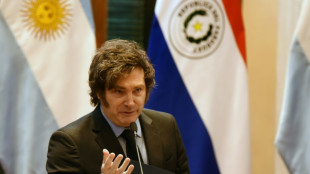 Argentina receives $42 bn from international financial institutions
Argentina receives $42 bn from international financial institutions
-
Menendez brothers' resentencing can go ahead: LA judge rules
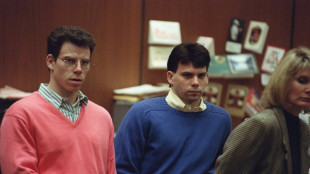
-
 'Hard on the body': Canadian troops train for Arctic defense
'Hard on the body': Canadian troops train for Arctic defense
-
Trump, 78, says feels in 'very good shape' after annual checkup

-
 McKellar 'very, very proud' after 'Tahs tame rampant Chiefs
McKellar 'very, very proud' after 'Tahs tame rampant Chiefs
-
Man executed by firing squad in South Carolina

-
 Defending champ Scheffler three back after tough day at Augusta
Defending champ Scheffler three back after tough day at Augusta
-
New to The Street Announces Bloomberg Television Lineup for Saturday, April 12 at 6:30 PM ET Featuring Health In Tech CFO Julia Qian, BIOVie’s Dr. Joseph Palumbo, The Sustainable Green Team with Kevin Harrington and Tony Raynor, and eXoZymes Vice President Tyler Korman - as Sponsored Programming


US patient 'happy again' after brain implant treats epilepsy and OCD
American Amber Pearson used to wash her hands until they bled, terrified by the idea of contamination from everyday items, a debilitating result of her obsessive compulsive disorder (OCD).
But the repetitive rituals of her condition are largely consigned to memory, thanks to a revolutionary brain implant that is being used to treat both her epilepsy and her OCD.
"I'm actually present in my daily life and that's incredible," the 34-year-old told AFP.
"Before, I was just constantly in my head worrying about my compulsions."
Brain implants have hit the headlines recently with Elon Musk's announcement that his Neuralink company had placed a chip in a patient's head, which scientists hope will ultimately allow people to control a smartphone just by thinking about it.
But the idea of inserting a device into the brain is not new, and for decades doctors have known that precisely applied electrical stimulation can affect the way the brain operates.
Such deep-brain stimulation is used in the treatment of Parkinson's disease and other conditions affecting movement, including epilepsy.
Pearson's doctors offered her the 32-millimeter (just over an inch-long) device to treat her debilitating epileptic seizures, confident it would be able to detect the activity that causes the episodes and deliver a pulse to interfere with them.
It was then that Pearson herself had something of a lightbulb moment.
"It was her idea to say: 'Well, you're going into my brain and putting this wire, and I have OCD, so can you just put a wire for OCD?'," recalls neurosurgeon Ahmed Raslan, who carried out the procedure at Oregon Health and Science University in Portland on the US West Coast.
"And you know, luckily, we took that suggestion seriously."
There had previously been some study of the use of deep brain stimulation for people suffering from OCD, but, says Raslan, it had never been combined with treatment for epilepsy.
Doctors worked with Pearson to see exactly what happens in her brain when she gets trapped in an obsessive loop.
The technique involved exposing her to known stressors -- in this case, seafood -- and recording the electrical markers.
In this way, they could effectively isolate the brain activity associated with her OCD.
They could then configure her implant so that it would react to that specific signal.
- Hope -
The dual-program device now watches for brain activity associated both with epilepsy and with OCD.
It is "the only device in the world that treats two conditions," says Raslan.
"And it's programmed independently. So the program for epilepsy is different than the program for OCD."
It's a breakthrough he thinks only someone like Pearson could have come up with.
"This is the first time in the world that's been done. Usually we think of devices either for OCD or for epilepsy.
"This idea sits outside of the box and would only come from a patient," he says.
Raslan said a study is now under way at the University of Pennsylvania to see how this technique can be more widely applied, offering possible hope to some of the 2.5 million people in the United States who suffer from OCD.
For Pearson, there was an eight-month wait after the 2019 procedure to see any noticeable difference.
But gradually, the all-consuming rituals that had taken up eight or nine hours every day since her teenage years began to ebb.
The endless pre-bed checklists of window-shutting, and the constant hand-washing diminished to a manageable 30 minutes a day.
And the fear of contamination from eating with others is now gone.
"I'm happy again and excited to go out and live and be with my friends and my family," she said.
That "was something I was cut off from for years."
P.Mathewson--AMWN
